The Canadian International Development Agency (CIDA) funded the Citizens’ Disaster Response Center’s emergency relief assistance to the flood-stricken province of Isabela.
CIDA donated P587,000 to CDRC through its Canada Fund for Local Initiatives (CFLI) program after the destruction brought by Typhoon Megi (Juan) and the succeeding heavy rainfall which caused massive flooding in the province.
CDRC, with the help of its regional center, the Center for Relief and Rehabilitation Service-Cagayan Valley (CRRS-CV), distributed 10 kilos of rice, 1 kilo of monggo beans, 1 kilo of dired fish, 6 cans of sardines, 1 kilo of sugar, 500 ml cooking oil, 1 bar laundry soap, 1 water container and bottled water to more than 600 families in the town of Benito Soliven.
Four baranggays, namely Yeban Norte, Yeban Sur, Maluno Norte and Maluno Sur, received the emergency relief packs Friday.
CRRS-CV Executive Director Pilar Bautista said the beneficiaries were filled with gratitude after accepting the goods. “These are the most economically deprived segments of the population. They are the poor peasants, minimum wage-earners, fisher folks and urban poor. This condition makes them the perennial victims of natural calamities. Majority of them has not fully rebuilt their lives from previous disasters, and here comes another one,” Bautista said.
Meantime, CDRC’s Deputy Executive Director, Carlos Padolina said that the suffering of the people was somehow eased by the assistance that they received. “The people in the community were not only grateful, but touched by the outpouring of support,” Padolina said.
“The women in particular were highly appreciative of the special attention on lactating mothers who were provided with clean drinking water,” Padolina added.
However, Padolina stressed that the affected population should never be considered as mere victims of disasters. “As an NGO advocating community-based disaster management, we consider them as survivors. We believe in peoples’ capacities. No one is completely helpless. People can rebuild from what was left, and be empowered in the process,” he said.
“That’s why CDRC stresses the importance of community participation. Everyone has a role in community development; people are not only passive recipients of aid,” Padolina said.
In fact, Padolina explained that the relief delivery operation was mainly organized by the Disaster Preparedness Committees that CDRC and CRRS-CV has earlier organized. “The women DPCs were the most active members in organizing the activity from the repacking down to the distribution,” he said.
CDRC is a non-government organization that pioneered and continues to promote community-based disaster management in the Philippines. CDRC operates nationwide through a network of regional centers affiliated with the Citizens’ Disaster Response Network and through people’s organizations. #

Leave a Reply